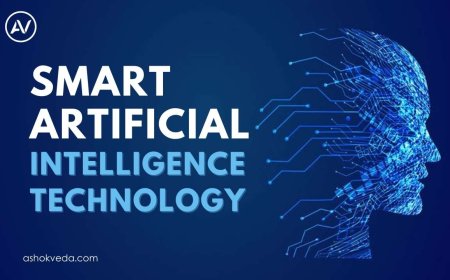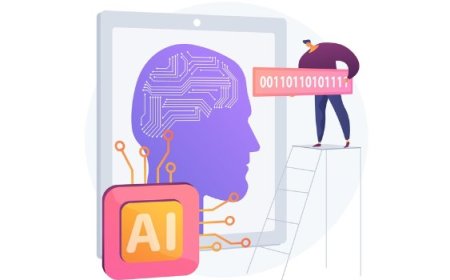Artificial Intelligence Ethical Issues in Focus
Explore key ethical issues surrounding artificial intelligence, including bias, privacy, accountability, and transparency in AI technologies.

Artificial intelligence (AI) is growing as an important actor in the digital transformation field. As we investigate ethical issues related to artificial intelligence, it is important to note that AI extends a wide range of technology and applications. AI has a wide range of applications, including Machine Learning, Deep Learning, and Natural Language Processing (NLP). As we look into the ethical challenges around artificial intelligence, we'll also talk about the impact of AI technology and its multiple applications.
Understanding Artificial Intelligence Ethical Issues
Artificial intelligence ethical issues often center around the proper application of AI technology. With an increasing number of AI tools and AI algorithms, it's important to consider how these technologies affect our daily lives and society as a whole. This is a closer look at the important Artificial Intelligence ethical problems under consideration:
1. Bias and Fairness
One major Artificial Intelligence ethical issue is bias. AI systems and AI algorithms can reflect and even amplify existing prejudices present in training data. For instance, if AI solutions used in hiring processes are trained on biased data, they might inadvertently perpetuate discrimination. Ensuring fairness involves refining AI applications and monitoring AI systems to reduce bias.
2. Privacy Concerns
Another critical ethical issue is privacy. Many AI applications require access to large datasets, which often include personal information. The collection, storage, and processing of this data must be handled with care to protect individual privacy. Ensuring robust data protection in AI software and AI platforms is essential to address these privacy concerns.
3. Accountability and Transparency
With AI development and the use of AI technology, transparency and accountability become crucial. Understanding how decisions are made by AI systems is vital for trust. Developing transparent AI solutions and ensuring that AI programming allows for clear explanations of decisions are key to addressing accountability in AI applications.
4. Job Displacement
The impact of AI in business and automation on employment is another significant ethical issue. While AI technology can drive innovation, it also has the potential to displace jobs. Addressing this requires implementing reskilling programs and supporting workers affected by automation, ensuring that the benefits of AI for healthcare, AI for finance, and other sectors do not come at the expense of job security.
5. Autonomy and Decision-Making
When AI systems are used in decision-making roles, such as in autonomous vehicles or medical diagnostics, maintaining human oversight is crucial. Ethical AI applications must ensure that humans retain control over critical decisions, balancing the capabilities of AI technology with the need for human judgment.
6. Security Risks
AI technology and its applications are also vulnerable to security risks. Protecting AI systems from attacks and misuse is essential to prevent harm. Implementing strong cybersecurity measures in AI platforms and regularly updating AI tools can help mitigate these risks.
7. Manipulation and Deception
The potential for AI tools to create misleading or harmful content, such as deepfakes, raises ethical concerns. Ensuring that AI applications are used responsibly and developing guidelines to prevent misuse are important for addressing manipulation and deception.
8. Impact on Social Structures
Finally, the impact of AI technology on social structures needs consideration. AI applications can influence social dynamics and power structures. Using AI solutions in ways that promote social good and mitigate inequalities is crucial for maintaining ethical standards.
Addressing Artificial Intelligence Ethical Issues
To address these Artificial Intelligence ethical issues, several strategies can be employed:
1. Establishing Ethical Guidelines
Developing clear ethical guidelines for AI technology is fundamental. These guidelines should cover aspects such as fairness, privacy, and transparency in AI systems and AI applications.
2. Promoting Inclusivity and Diversity
Encouraging diversity in AI development teams helps ensure that different perspectives are considered, which can reduce bias in AI algorithms and improve fairness in AI solutions.
3. Ensuring Public Engagement
Engaging with the public about AI technology and its ethical implications helps align the development of AI systems with societal values and needs. This engagement fosters trust and promotes responsible use.
4. Implementing Robust Testing and Monitoring
Regular testing and monitoring of AI applications are necessary to identify and address ethical issues. Continuous evaluation ensures that AI tools remain fair, transparent, and secure.
5. Supporting Education and Awareness
Educating stakeholders about AI technology and its ethical challenges is crucial. Training developers, policymakers, and the public on the implications of AI algorithms and AI systems promotes a responsible approach to AI programming.
The Future of Artificial Intelligence Ethical Issues
1. Ethical AI Design: Building Responsible AI Systems
Designing ethical AI systems involves more than simply addressing difficulties after deployment. The process begins with incorporating ethical considerations into the design phase. By including ethics in AI development, we make sure that AI technology is designed with privacy, fairness, and transparency in mind from the start. This is how ethical design practices might affect AI applications:
-
Inclusive Design: Involving diverse teams in the design process can help detect and resolve potential biases at an early stage. Diverse perspectives help to create equitable AI solutions.
-
Explainability: It is important that AI systems provide clear explanations for their decisions. Explainable AI technology promotes confidence by allowing people to understand and debate decisions.
-
Ethical Frameworks: Using frameworks and standards to guide the ethical design of AI technologies can help developers match with best practices. These frameworks frequently incorporate ideals like fairness, accountability, and transparency.
2. Regulating Artificial Intelligence (AI) Legal and Policy Considerations
As AI technology advances, so will the need for appropriate regulation. Legal and policy considerations are important for making sure that AI applications are used responsibly and ethically. Here are some important areas of focus in governing AI:
-
Data Privacy Laws: Regulations like GDPR and CCPA govern how AI systems gather, store, and use personal information. Maintaining compliance with these laws is essential for protecting user privacy.
-
Accountability Measures: Clear accountability for AI judgments is required to address questions of responsibility and liability. Regulations may compel enterprises to document how AI systems make judgments and who is accountable for them.
-
Ethical rules: Governments and organizations are progressively creating ethical rules for AI technology. These guidelines provide a framework for responsible AI development and deployment.
3. AI research and development: promoting ethical innovation
Continuous AI research and development are important for advancing technology, but they must be undertaken with ethical issues in mind.
-
Ethical Research Practices: Ensuring that AI research follows ethical norms and respects the rights of those involved is critical to responsible innovation.
-
Collaborative Efforts: Collaboration between researchers, policymakers, and industry leaders can help address ethical challenges and promote responsible AI development.
-
Public Engagement: Engaging the public in discussions about AI research and its implications helps ensure that innovation aligns with societal values and needs.
Focusing on AI ethical issues has implications for the appropriate development and deployment of AI technologies. By tackling issues such as bias, privacy, accountability, and security, we can ensure that AI solutions are helpful and equitable to everybody. As AI advances, focusing on these ethical challenges will lead us to a future in which AI systems benefit society.





































